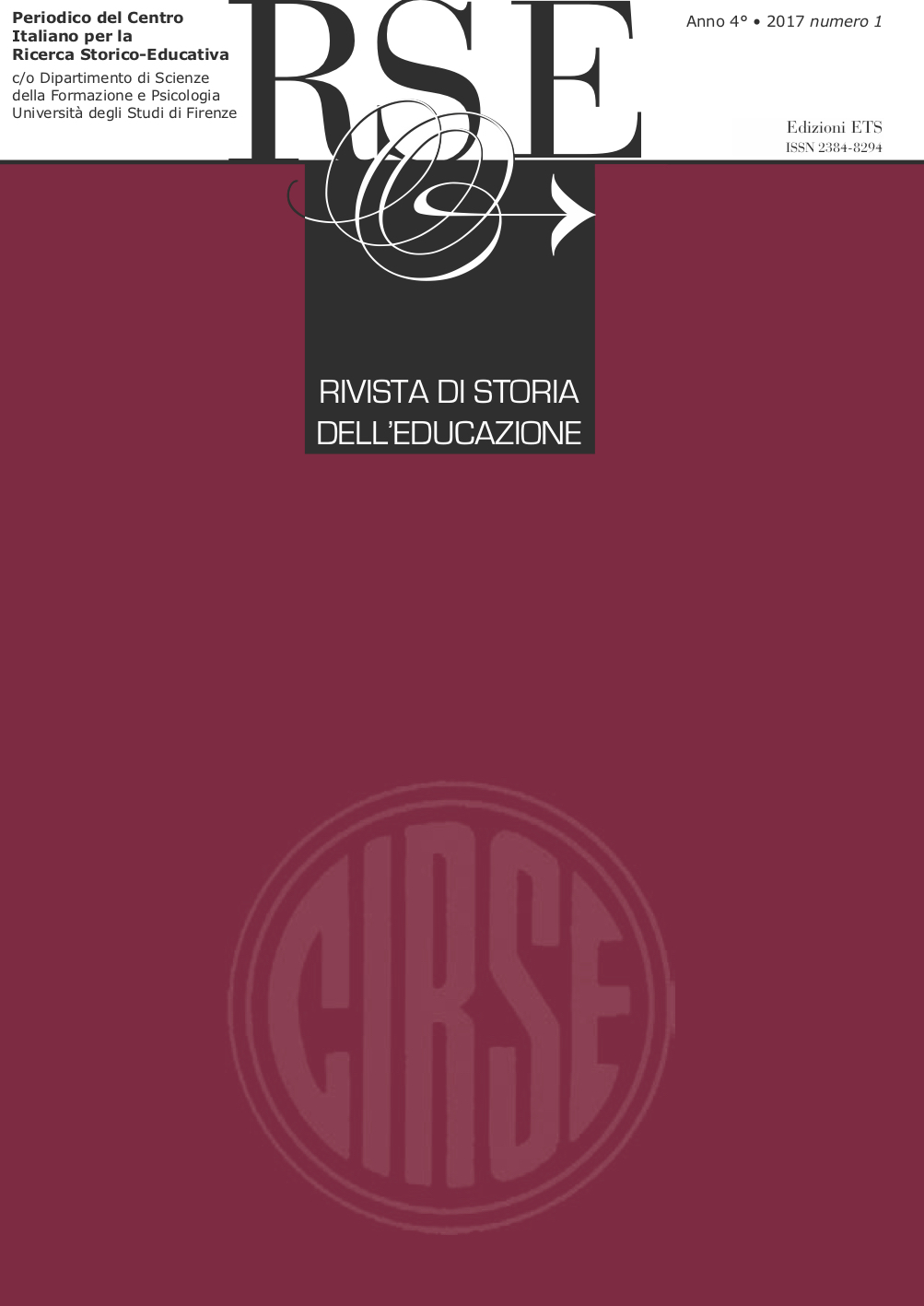Secondary schooling in the hinterland of the State of São Paulo: local political power and formation of elites (Matão-SP, 1940-1965)
Published 2018-06-03
Keywords
- History of Secondary Education, Local political power, Formation of elites, Middle school course, History of Teaching Institutions
How to Cite
Abstract
This paper presents the final results of research work done on the history of the first State Gymnasium of the city of Matão, in the hinterland of the state of São Paulo, in the period between 1940 and 1965, problematizing the action of the local political power in favor of the formation of elites. The study, therefore, focuses on an examination of the creation (on December 31, 1940) and of the institutional changes undergone by Matão State Gymnasium. We adopted, for a better understanding of this object of study, the theoretical framework of the New Political History, Regional History, and Cultural History. The historical study of this public teaching institution highlights the important role played by the municipalities in the expansion of secondary education in Brazil, the social representations about the school, and how the local political actors used it as exchange currency and political strategy for maintaining power.

